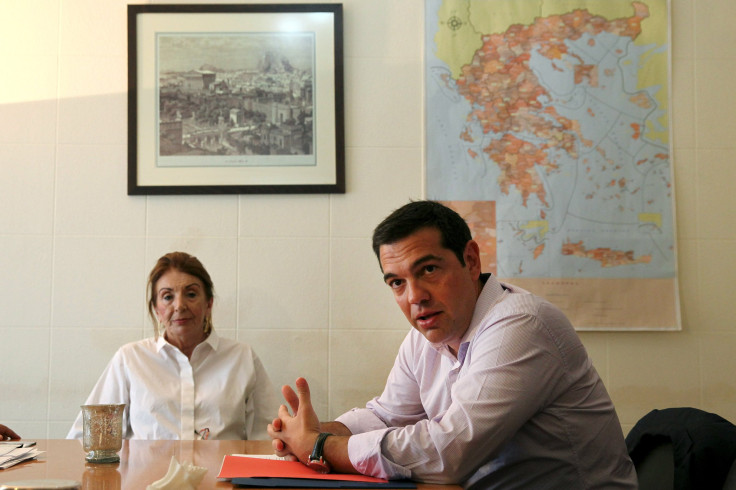Greece Submits Bailout Draft To Parliament, Expects Vote In 2 Days

Greece submitted the draft bill for a proposed third round of bailouts to its parliament Wednesday, aiming to vote on the measure before a meeting with eurozone finance ministers on Friday. The bill reportedly includes several painful concessions that Greece’s international creditors have demanded, including tax hikes and spending cuts.
Prime Minister Alexis Tsipras convened an emergency session of parliament Wednesday where he called on lawmakers to push the bill through committee-level talks, ahead of a debate and final vote on the measure by Friday. However, Speaker Zoe Konstantopoulou, part of a growing voice of dissent within the ruling Syriza party, reportedly scheduled the procedure to start only Wednesday night, which would delay the talks and push the final voting to the early hours of Friday, the Associated Press reported.
"The government wants it to be approved before Friday's Eurogroup meeting," a parliamentary official told Reuters, referring to the meeting of euro zone finance ministers. "That is the effort."
Tsipras has struggled to contain a revolt from within his party after he accepted terms for a third bailout from the so-called “troika” of international creditors -- the International Monetary Fund (IMF), the European Central Bank (ECB) and the European Commission -- that call for severe austerity measures. In a vote to approve talks for a third bailout, about a third of the party’s lawmakers voted against the measure, and reports emerged in July that noted former Syriza members had planned to create an alternative payment system for drachmas. The leftist Syriza party came to power in January promising to take a tough stance against austerity.
Greece's economy is predicted to shrink by 2.3 percent in 2015 and by 1.3 percent in 2016, Agence France-Presse reported, citing European Union sources.
The bailout agreement was reached after months of acrimonious talks between Greece and its creditors that threatened to fall through, raising the possibility of a Greek default and possible departure from the eurozone. While Greece and the troika have agreed to a new bailout in principle, several specific points of contention remain.
Previous talks saw parties disagree on proposed reforms for housing foreclosures, and major privatization programs for several major Greek utilities and an opening up of its energy markets. The IMF has also called for further debt relief to Greece, warning that its current level of debt is unsustainable -- a point that has been strongly opposed by major creditor Germany.
All parties face a hard deadline of Aug. 20, when Greece has to buy back $3.84 billion worth of its bonds from the ECB. Reports suggest that Athens is trying to receive as much as $94 billion in its new bailout package.
© Copyright IBTimes 2025. All rights reserved.




















